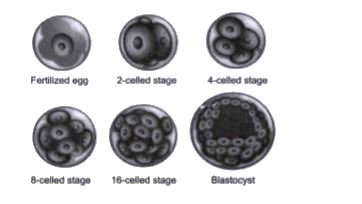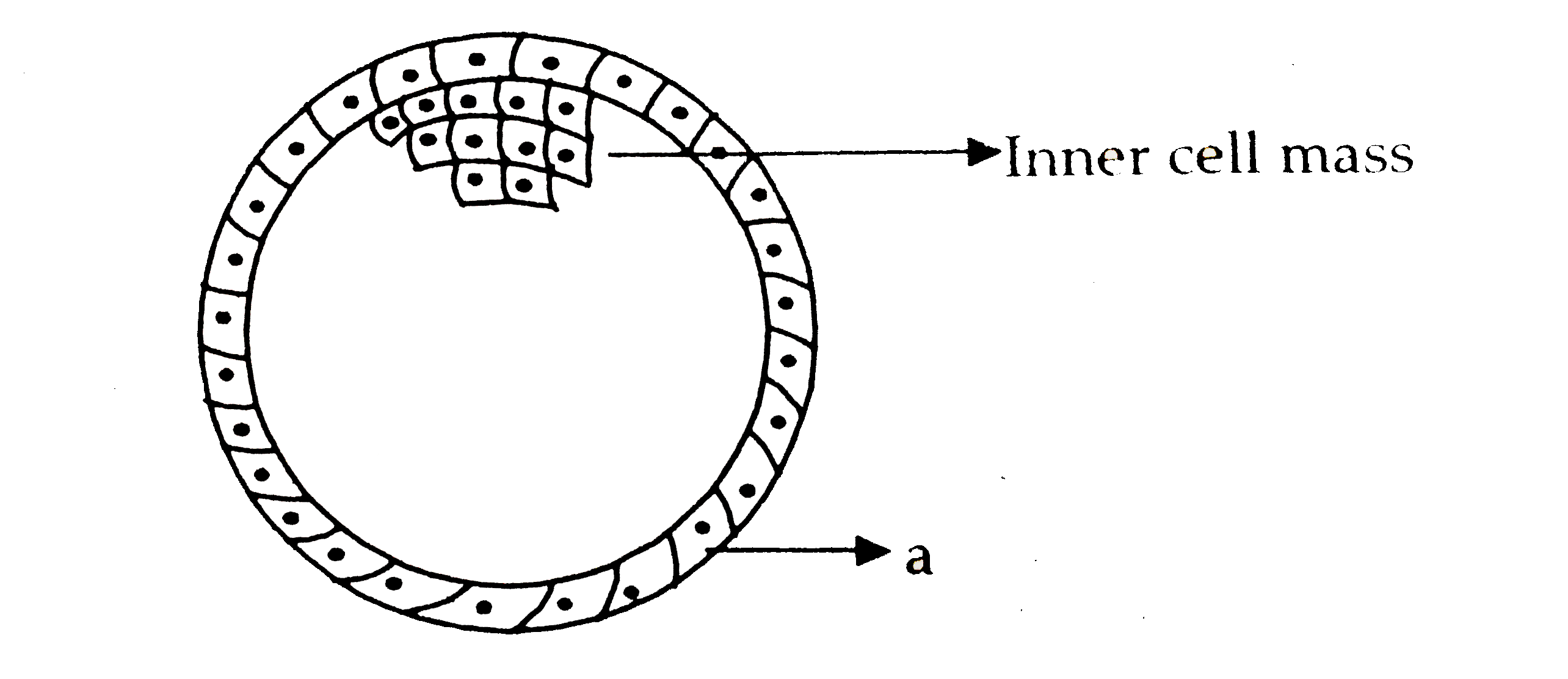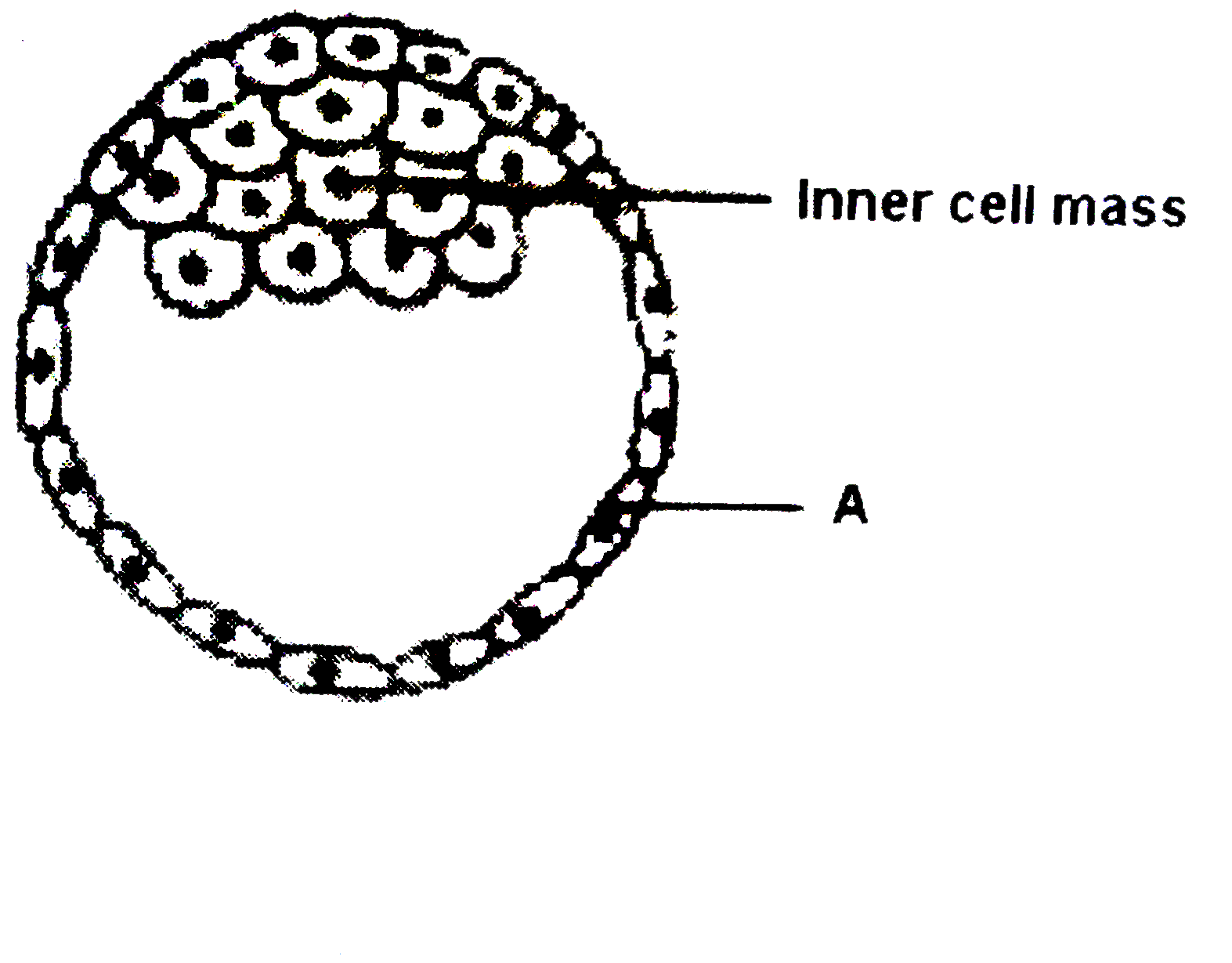An important function of progesterone is:
1. prepare uterus for pregnency
2. implantation of embryo
3. maintainance of pregneny
4. stimulate ADH
(A) and (B) are correct
(B) and (D) are correct
(A) and (C) are correct.
(A), (B) and (C) are correct.
The correct Answer is:D
To determine the important function of progesterone, let's analyze the options provided in the question step by step.
Step 1: Understanding Progesterone
Progesterone is a hormone primarily produced by the corpus luteum in the ovaries after ovulation. It plays a crucial role in the female reproductive system.
Step 2: Evaluating Each Option
1. Prepare uterus for pregnancy: Progesterone helps thicken the endometrial lining of the uterus, making it suitable for the implantation of a fertilized egg. This option is correct.
2. Implantation of embryo: While progesterone creates a favorable environment for implantation, it does not directly cause the implantation itself. This option is somewhat correct but not the primary function of progesterone.
3. Maintenance of pregnancy: Once implantation occurs, progesterone is essential for maintaining the pregnancy by preventing uterine contractions and supporting the developing embryo. This option is correct.
4. Stimulate ADH: Antidiuretic hormone (ADH) is produced by the posterior pituitary gland and is not influenced by progesterone. This option is incorrect.
Step 3: Conclusion
Based on the analysis:
- The most important functions of progesterone are to prepare the uterus for pregnancy and to maintain pregnancy. Therefore, options 1 and 3 are correct.
Final Answer
The important functions of progesterone are:
1. Prepare uterus for pregnancy (Correct)
3. Maintenance of pregnancy (Correct)
Progesterone is a hormone primarily produced by the corpus luteum in the ovaries after ovulation. It plays a crucial role in the female reproductive system.
1. Prepare uterus for pregnancy: Progesterone helps thicken the endometrial lining of the uterus, making it suitable for the implantation of a fertilized egg. This option is correct.
2. Implantation of embryo: While progesterone creates a favorable environment for implantation, it does not directly cause the implantation itself. This option is somewhat correct but not the primary function of progesterone.
Based on the analysis:
- The most important functions of progesterone are to prepare the uterus for pregnancy and to maintain pregnancy. Therefore, options 1 and 3 are correct.
The important functions of progesterone are:
1. Prepare uterus for pregnancy (Correct)
3. Maintenance of pregnancy (Correct)
Topper's Solved these Questions
Similar Questions
Read of following statements and select the correct option
Statement 1 : Subcutaneous implantation of synthetic progesterone prevents pregancy for about 5 years
Statement 2 : A tiny amount of progesterone is steadily released from the inserts into the blood.
View SolutionThe function of ovary is
a. To produce female gamete.
b. To provide the site for fertilisation
c. To provide the site for implantation
d. To produce several steroid hormones
(1) a and b
(2) a, b and d
(3) a, b and d
(4) a and d
View Solution
Knowledge Check
Cleavage is the series of rapid mitotic divisions in zygote and forms blastula. The 2, 4, 8, 16 daughter cells are called blastomere. Embryo with 64 blastomere is known as blastocyst and has blastocoel cavity. Blastocyst gets implanted in uterine wall and leads to pregnancy.

Site of implantation is:AEndometrium of uterusBCervixCUterine fundusDInfundibulum of oviduct
Study the figure given below and answer the questions that follow :
Name the stage of human embryo the figure represents
Identify 'a' in the figure and mention its function.
Mention the fate of the inner cell mass after implantation in the uterus
Where are the stem cells located in this embryo?

View SolutionStudy the figure given below and answer the questions that follow :
(a)Name the stage of human embryo the figure represents.
(b)Identify 'A' in the figure and mention its function .
( c )Mention the fate of the inner cell mass after implantation in the uterus .

(d)Where are the stem cells located in this embryo ?
View SolutionHow many is / are an incorrect matches in the following ?
(1) Menopause : Cessation of menstruation in primate females.
(2). Cleavage : Rapid meiotic cell division occurs inside the fallopian tube .
(3). Spermiation : Release of sperms from the epididymis to penile urethra.
(4) Implantation : The embedding of blastocyst to the myometrium of the uterus which leads to pregnancy.
View SolutionIntegrate the functions√1−4x2
View Solutionwhich of the following is important for conversion of pepsinogens into pepsin?
1) F e 2 +
2) HCL
3) Bicarbonate ions
4) Enterokinase
View SolutionThe total number of onto functions from the set {1,2,3,4) to the set (3,4,7) is
View SolutionHow much volume of 3.0 M H2SO4 is required for the preparation
of 1.0 litre of 1.0 M solution ?
View Solution
